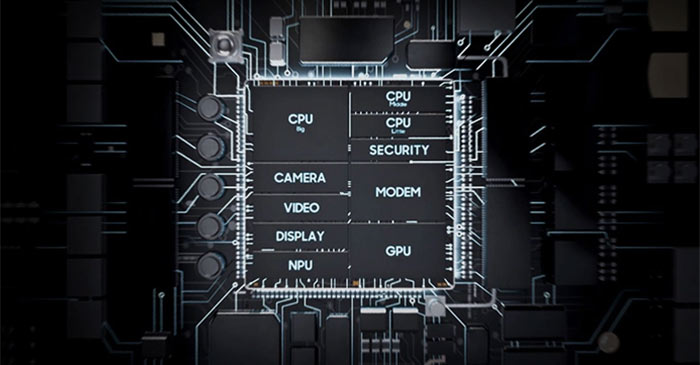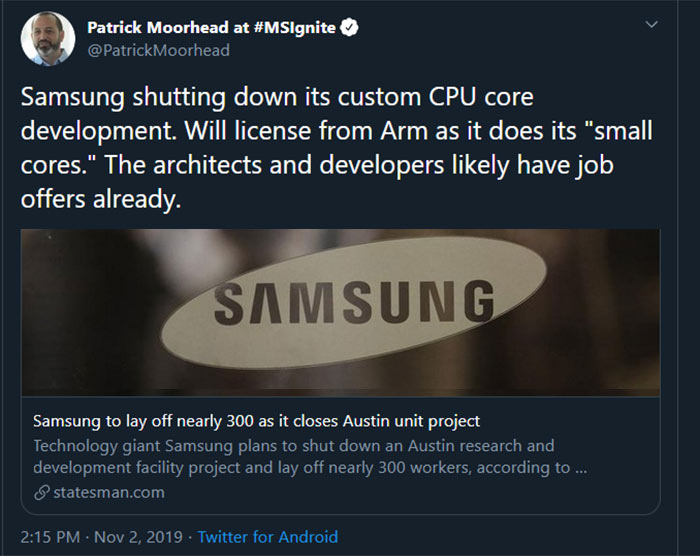Samsung will lay off 290 employees at its Austin R&D lab who previously worked on developing custom CPU cores for its Exynos processors. Furthermore, an undisclosed number of workers will be laid-off at its San Jose facility. The job cuts will begin on 31st December, and are permanent, it has been noted by the Austin Statesman Journal.
A month ago Extreme Tech published a story concerning rumours of impending layoffs at Samsung Semiconductor R&D Centre in Austin. Now it looks like the chitter-chatter has been validated by this official filing at the Texas Workforce Commission.

Handily for some employees, who will be in the hunt for a regular salary, Arm has an office in a nearby location. Hopefully the end of the R&D at Austin won't have wider impacts at Samsung Austin which currently employs about 3,600 people and reassurances along those lines have been made by a Samsung spokesperson. On the topic of wider impacts, Samsung will also close its Central Processing Unit facility in San Jose, California - but it isn't clear how many layoffs this will result in.
Behind the change in the workforce was a reassessment of Samsung's custom CPU business. Industry analyst Patrick Moorhead of Moor Insights and Strategy said that Samsung's last few Exynos CPUs were powerful but comparatively power thirsty. Implying that Samsung R&D was finding this issue rather a sticky one "What (Samsung) is going to do now is actually license the design, not just the IP from Arm," said Moorhead.

Samsung might start to use Arm cores for its performance cores, rather than its own CPU designs based off Arm IP. However, it could still differentiate its SoCs with home grown GPU, DSP and AI accelerators or via deals with the likes of AMD (Radeon powered Galaxy devices).






